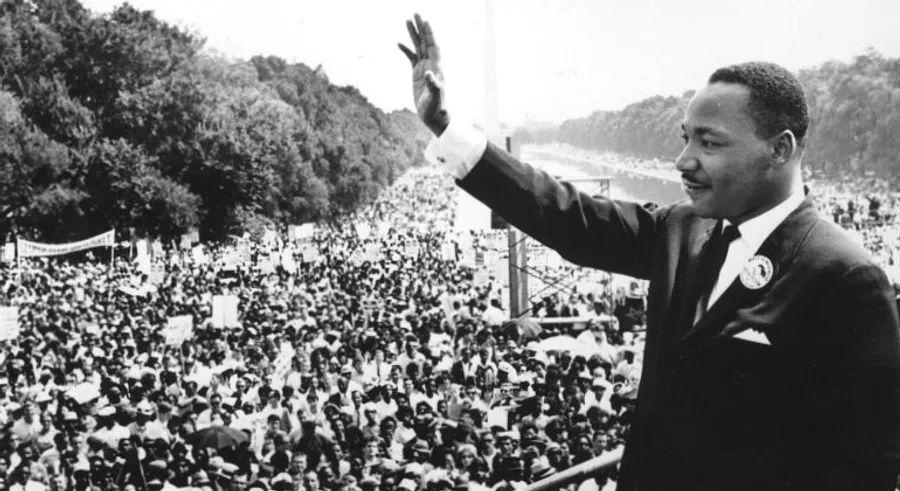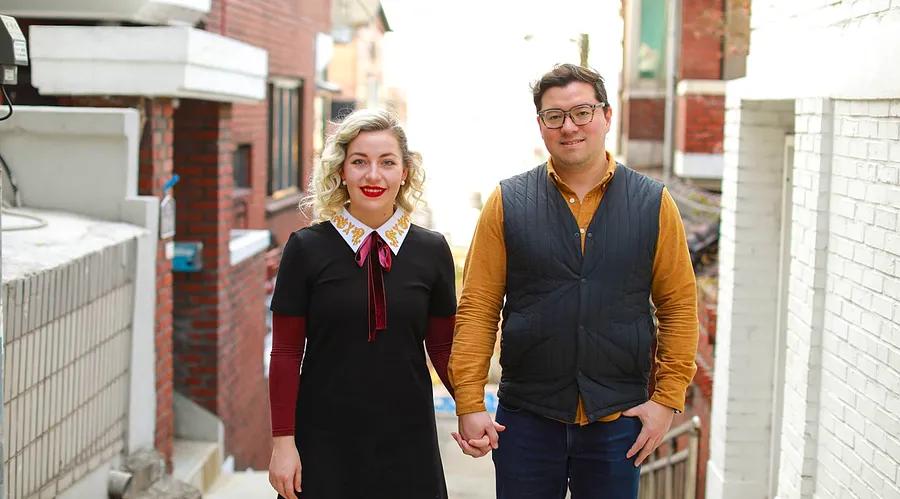9 locations where you can follow in Martin Luther King Jr.'s path

Though Martin Luther King Jr. was born and raised in the American South, his vision for racial equality and social justice reached far beyond his region, impacting the entire nation and resonating globally. His influence wasn't limited to his ideas; he personally journeyed to distant places across the world.
You can pay tribute to him on Martin Luther King Jr. Day (Monday, January 15) – or at any time – by following in his footsteps, either metaphorically or physically.
From his roots in the South to surprising destinations across the globe, here are the key places that shaped and inspired his legacy:
Atlanta, Georgia

Raymond Boyd/Getty Images
Atlanta, Georgia’s bustling capital, is both the birthplace and final resting place of Martin Luther King Jr. As such, it holds a prominent place in his legacy, with numerous MLK-related sites scattered throughout the city.
Many of these sites are concentrated in the MLK Jr. National Historical Park, located in the Sweet Auburn district of downtown Atlanta, including the final resting places of Martin Luther King Jr. and Coretta Scott King.
Some notable highlights include:
• Ebenezer Baptist Church: This sacred site is where MLK was baptized and began co-pastoring with his father in 1960. The church has been beautifully restored to its 1960s appearance, offering a peaceful space for prayer and reflection. 407 Auburn Ave. NE, Atlanta, GA 30312.
• MLK Birth Home: Visit the two-story house where MLK grew up, located in Sweet Auburn, once the heart of African American life in Atlanta. 501 Auburn Ave NE, Atlanta, GA 30312.
• The King Center: Founded by Coretta Scott King in 1968, this center honors the Kings’ legacy. Prior to the pandemic, nearly a million visitors each year came to learn about their lives and pay respects at their tombs, reflecting pool, and eternal flame. 449 Auburn Ave. NE, Atlanta, GA 30312.
Just a short distance away, renowned Morehouse College is where King earned his degree. MLK Jr. was one of many members of the King family to study there. The campus offers a tranquil setting to walk where the young scholar once roamed. 830 Westview Dr. SW, Atlanta, GA 30314.
Memphis, Tennessee
Despite its size, Memphis holds a disproportionate influence on America's musical, cultural, and political history. In March 1968, amid national unrest and violence, Martin Luther King Jr. arrived in Memphis to support striking sanitation workers.
King and his companions stayed at the Lorraine Motel, a safe haven for Black travelers during that era. On April 4, while standing on the balcony outside room 306, he was tragically shot and killed.
Today, the Lorraine Motel is home to the National Civil Rights Museum, where visitors can explore the vast history of civil rights and visit the very room where King spent his final hours.
On the upcoming Monday holiday, the museum will host an all-day celebration, featuring children’s activities, live performances, and a food drive. Admission is free from 8 a.m. to 6 p.m., and a new exhibit, “Tarred Healing,” showcasing Cornell Watson’s photography, opens on the same day. 450 Mulberry St., Memphis, TN 38103.
To dine where King often enjoyed his meals, visit the soul food spot The Four Way. Serving Southern classics like fried chicken, turnip greens, and lemon meringue pie (allegedly a favorite of MLK), it’s been a Memphis institution since 1946. 998 Mississippi Blvd., Memphis, TN 38126.
Montgomery, Alabama
The significance of King’s time in Montgomery during the mid-1950s cannot be overstated. His leadership of the historic bus boycott after Rosa Parks' brave refusal to give up her seat catapulted him into national and international prominence.
Today, Montgomery boasts a wealth of essential civil rights landmarks, including:
• The open-air National Memorial for Peace and Justice, which delves into the painful history of lynching, Jim Crow laws, and racial injustice. 417 Caroline St, Montgomery, AL 36104.
• The indoor Legacy Museum, located about a mile from the memorial, sits on land where Black individuals were once forced into labor under slavery. 400 N. Court St, Montgomery, AL 36104.
Both were established by the Equal Justice Initiative and will be open on Monday in observance of MLK Day, offering free admission.
• The Rosa Parks Museum at Troy University, dedicated to honoring Rosa Parks’ legacy and the lessons learned from the Montgomery Bus Boycott. 252 Montgomery St, Montgomery, AL 36104.
• Dexter Avenue King Memorial Baptist Church: Founded in 1877 in a former slave pen, initially called Second Colored Baptist Church, King served as its pastor from 1954 to 1960. It was here that he strategized the bus boycott and other initiatives to combat segregation. Tours are available by appointment; worship services are held on Sunday mornings. 454 Dexter Ave, Montgomery, AL 36104.
• Dexter Parsonage Museum: The wooden house where King resided, which was bombed multiple times during the civil rights movement. Open Fridays and Saturdays; other times by appointment. 309 S Jackson St, Montgomery, AL 36104.
• Relish some history with your meal at Brenda’s Bar-Be-Que. During the Montgomery bus boycott, this was a gathering place for organizers, and it was here that Black community members were taught to read and write to pass literacy tests for voting. Local favorites include ribs and a pig ear sandwich. 1457 Mobile Road Montgomery, AL 36108.
Birmingham, Alabama

Raymond Boyd/Getty Images
Once an industrial hub of the South and a stronghold of resistance to integration in the mid-1900s, Birmingham played a crucial role in King’s journey.
It was in this very city that King wrote his renowned “Letter from a Birmingham Jail” in 1963, passionately defending the power of nonviolent civil disobedience to white ministers who questioned his methods and criticized his impatience with the slow pace of change.
You can view the actual jail door from King’s cell at the Birmingham Civil Rights Institute, along with pivotal documents and oral histories from the civil rights era. 520 16th St N, Birmingham, AL 35203; +1 205 328 9696
Kelly Ingram Park, a key gathering place for the Southern Christian Leadership Conference and other civil rights organizations, now features sculptures that depict the struggles of the movement. 5th Avenue N & 16th Street.
Washington, DC

Al Drago/Getty Images
It feels almost certain that King’s fight for justice would lead him to the nation’s capital. Here are several places to explore in Washington, DC:
• Martin Luther King Jr. Memorial: The first memorial dedicated to an African American on the National Mall, it was unveiled to the public in 2011. The 30-foot statue of King emerging from stone is striking, and the site features carved inscriptions of his powerful quotes. 1850 West Basin Drive SW, Washington, DC 20024 (the Smithsonian Metro station is the closest)
• The Lincoln Memorial: It was from the steps of this iconic memorial that King delivered his legendary “I Have a Dream” speech. Picture the scene on August 28, 1963, with over 250,000 people gathered to hear one of the most pivotal addresses in American history. 2 Lincoln Memorial Cir NW, Washington, DC 20037
• The National Museum of African American History and Culture: This museum, which opened in 2016, is a significant addition to Washington’s cultural institutions. It houses artifacts directly connected to King, along with a comprehensive exploration of the African American experience. 1400 Constitution Ave NW, Washington, DC 20560
Boston, Massachusetts

While many Southern cities boast a connection to King’s legacy, it might surprise some to learn that Boston, a symbol of New England, also played a significant role in his journey.
Before heading back to the South, King spent time at Boston University in the early 1950s. Much like walking in the footsteps of undergraduates at Morehouse in Atlanta, you can trace grad student King’s path at BU. 771 Commonwealth Ave., Boston, MA 02215.
A visit to the stately Massachusetts State House might also be in order, where King addressed a joint session of the legislature in April 1965. 24 Beacon St, Boston, MA 02133
In Boston Common park, you’ll find a 22-foot tribute known as The Embrace, honoring MLK and Coretta Scott King. This is the city where their love story began and where they started their married life.
Bimini, Bahamas

Why not combine a tropical escape with a dive into MLK history? Bimini, the westernmost island of the Bahamas, is just 50 miles from Florida and offers both relaxation and reflection.
King often visited this peaceful spot to relax and refine his speeches, including the notes for his Nobel Peace Prize acceptance address delivered in Oslo in 1964.
According to Lilit Marcus of Dinogo Travel, there are two busts of King on the island—one near the Straw Market in Alice Town, and another nestled among the mangroves where King spent countless tranquil afternoons.
Ghana

The civil rights movement in the U.S. and the wave of decolonization in Africa unfolded simultaneously, and the two struggles naturally intersected.
In 1957, the Kings traveled to Ghana to witness its independence from Britain, as detailed in the King Encyclopedia at Stanford University. While in Accra, he met with then-Vice President Richard Nixon and other notable figures.
King’s first international trip to Ghana had a lasting impact. Upon returning to the U.S., he remarked, 'Ghana has something to teach us. It shows that the oppressor will never willingly grant freedom to the oppressed. You must fight for it.'
Before the pandemic, Ghana was quickly becoming one of the top travel destinations not just in West Africa, but across the entire continent. Visitors flocked there for its beaches, wildlife, and cuisine, as well as its significant historical landmarks.
Among Ghana’s key historical sites is Cape Coast Castle, a central hub in the transatlantic slave trade. A visit there offers a poignant reminder of centuries of injustice, its effects stretching from King’s era to the present day. Victoria Road, Cape Coast, Ghana, +233 57 710 1707
India

Mahatma Gandhi’s philosophy of nonviolent resistance to British colonial rule had a profound effect on King’s own civil rights efforts.
In early 1959, King spent five weeks touring India to immerse himself in the principles that shaped Gandhi's movement. During his time in Delhi, he met with Prime Minister Jawaharlal Nehru and engaged with students at New Delhi University.
He eventually journeyed to Calcutta (now Kolkata), the intellectual heart of India. A street named Martin Luther King Sarani, located near the Victoria Memorial, honors his legacy in the city.
In Mumbai (formerly Bombay), King visited Mani Bhavan, where Gandhi lived and worked for 17 years. Today, it stands as a museum with exhibits showcasing Gandhi's life. 19, Laburnum Road, Gamdevi, Mumbai-400 007, India.
Online
If visiting these historic sites isn't possible, you can explore King’s journey virtually through the King Institute at Stanford University’s website, which offers a comprehensive yet user-friendly look into his life and legacy.

1

2

3

4

5
Evaluation :
5/5